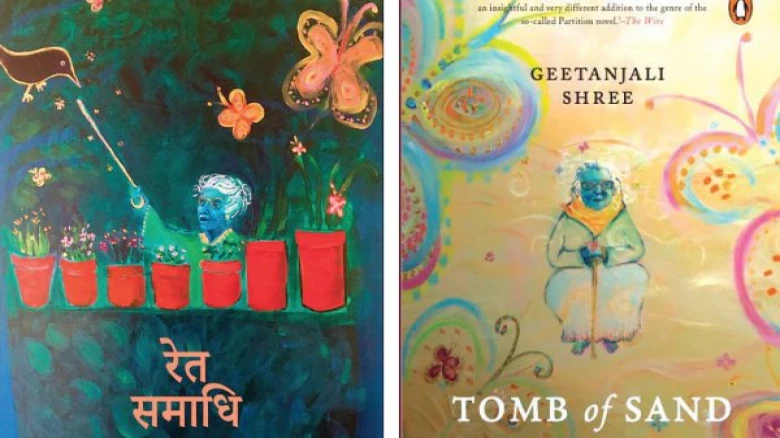National

"Tomb of Sand," originally named "Ret Ki Samadhi," is the first Hindi work translated into English to win the special award.
Digital Desk: The International Booker Prize victory of author Geetanjali Shree has opened a new array of opportunities for other excellent Hindi novels waiting for readers and translations, Hindi writers said on Friday.
"Tomb of Sand," originally titled "Ret Ki Samadhi," is the first Hindi work translated into English to win the prestigious award.
Daisy Rockwell, a novelist and translator, translated the book. The 50,000-pound monetary prize is distributed evenly between the author and the translator.

Geetanjali, who lives in New Delhi and has written three novels and several short story collections, has had her work translated into English, French, German, Serbian, and Korean.
Several Hindi writers and publishers spoke contrary to how Hindi novels are gaining the limelight worldwide.
Alka Saraogi, the winner of the Sahitya Akademi Award for Hindi fiction, said, "Geetanjali Shree's Booker-winning translation gives Hindi writing a fresh lease on life. So many famous works by Hindi writers have failed to reach the canon of world-class literature due to a lack of appropriate translations and publishers interested in them. It is a time of celebration for Hindi writers and readers."
It can't grow any bigger, according to veteran Hindi writer Prayag Shukla, who claimed to be the first to write a review of 'Ret Ki Samadhi,' and that Hindi literature is on its path to achieving global recognition.
Shukla further added that "It was only a matter of time. There have been several excellent translations of Hindi literature into various languages, including French and German. And it is as a result of this, Geetanjali, whom I have known as a gifted writer since she was a teenager, has won the award today."
Rachna Yadav, managing director of Hans, India's largest Hindi literary magazine, said the author's first piece, a short tale named "Bel Patra," was published in their magazine only in the late 1980s, making the 64-year-old Uttar Pradesh-born author's win all the more noteworthy.
The magazine, which had halted publishing in 1953 after being created by Munshi Premchand, was relaunched in 1986 by Rachna's father, the late Hindi author Rajendra Yadav.
The critically acclaimed novel is set in northern India and tells the narrative of an 80-year-old woman who journeys to Pakistan to confront the unresolved trauma of her teenage partition memories and re-evaluate what it means to be a mother, a daughter, a woman, and a feminist.
For veterans and the present generation of Hindi authors, the 64-year-old author's triumph has given them a renewed sense of purpose and optimism.
The novel by Geetanjali was picked from a shortlist of six publications, together with: Bora Chung's "Cursed Bunny," converted by Anton Hur from Korean; Jon Fosse's "A New Name: Septology VI-VII," transcribed by Damion Searls from Norwegian; Mieko Kawakami's "Heaven," transcribed by Samuel Bett and David Boyd from Japanese; Claudia Pineiro's "Elena Knows," transcribed by Frances Riddle from Spanish; and Olga Tokarczuk's "The Books of Jacob," translated by Jennifer who hails from Polish.
Also Read: Rhea Mahanta wins the coveted Youth Carnegie Peace Prize for 2021
Leave A Comment